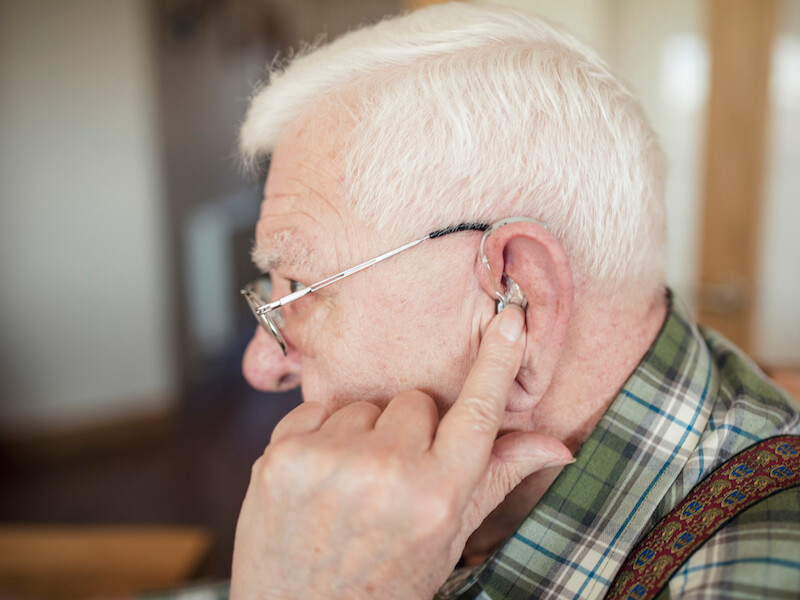
Does it seem as if your hearing aid batteries drain way too quickly? The reasons for this can be sometimes surprising.What is the average period of time that your hearing aid batteries should keep a charge? Anywhere from 3 to 7 days is normal. That range is pretty wide. In fact, it’s so wide that it probably won’t help you predict what should be going on with your hearing aid. You might be on day 4 at the grocery store when all of a sudden, things go quiet and you can’t hear the cashier. Or perhaps on day 5, you’re having an enjoyable conversation with friends when you unexpectedly feel very alone because you can’t participate because you can’t hear. Sometimes the batteries don’t even make that 3 day mark. Like when you’re watching TV on day 2 and all of a sudden you can’t hear the show your that’s on. It’s not just annoying. You just can’t tell how much battery power your hearing aids have left and it’s making you miss out on life. If your hearing aid batteries are dying too rapidly, there are several likely causes.
A Battery Can be Depleted by Moisture
Did you know that humans are one of the few species that produce moisture through their skin? We do it to cool off. We do it to get rid of excess toxins or sodium in the blood. Moreover, you may live in a humid or rainy climate where things get even more moist. This extra moisture can clog the air vent in your device, making it less efficient. Moisture can also interact with the chemicals of the battery causing it to drain faster. You can prevent moisture-related battery drainage with these steps:
- When you store your hearing aids, open the battery door
- A dehumidifier for your hearing aid is helpful
- Moist environments, like the kitchen or bathroom are not a good place to keep your hearing aids
- if your storing them for a few days or more, take the batteries out
Advanced Hearing Aid Functions Can Run Down Batteries
You get a much better hearing aid nowadays than you did even a decade ago. But these extra features can cause batteries to run down faster if you’re not keeping an eye on them. Don’t quit using your favorite features. But be aware that if you stream music for hours from your smartphone to your hearing aids, you’ll need to change the battery sooner. Your battery can be drained by any of the advanced functions, like multichannel, Bluetooth, noise cancellation, and tinnitus relief.
Altitude Changes Can Impact Batteries Too
Moving from a low to high altitude can sap your batteries, particularly if they’re on their older. Bring some spare batteries if you are going on a plane or high up into the mountains.
It’s Possible That The Batteries Aren’t Really Low
Some hearing aids tell you when the battery is low. These warnings are, under normal circumstances, a “heads up”. It doesn’t mean you have a depleted battery. Also, the charge can at times dip temporarily due to altitude or environmental changes and that can trigger a false low battery warning. Take the hearing aids out and reset them to stop the alarm. The battery may last several more hours or even days.
Handling Batteries Improperly
Wait until you’re ready to use your hearing aid to pull the tab from the battery. Refrain from getting skin oil and dirt on your hearing aid by cleaning your hands before touching them. Hearing aid batteries should not be frozen. It doesn’t increase their life as it might with other kinds of batteries. Hearing aid batteries might lose battery power faster if you make these basic handling errors.
It’s Not a Good Plan to Purchase a Year’s Supply of Batteries
Buying in bulk is typically a smart money move when you can afford to do it. But the last few batteries in the pack most likely won’t have full power. Try to stay with a 6-month supply or less unless you’re okay with the waste.
Purchasing Hearing Aid Batteries on The Web
It’s not a general criticism of purchasing things online. There are some really great deals out in cyberspace. But some less scrupulous people will sell batteries on the internet that are very near to the expiration date. They may even be beyond their expiration date. So buyer beware.
Both alkaline (AA, AAA, etc.) and zinc hearing aid batteries have an expiration date. If you were going to buy milk, you would check the expiration date. You have to use the same amount of care with batteries. Make sure that the date is well in the future so that you can get the most use out of the pack. It’s probably a smart idea to message the vendor if you don’t see an expiration date or better yet, come see us for your battery needs. Make sure you know and trust the seller.
Modern Hearing Aids Are Rechargeable
There are a number of reasons that hearing batteries may drain rapidly. But by taking little precautions you can get more life from each battery. You may also consider rechargeable hearing aids if you’re in the market for a new set. If you charge them while you sleep, you get a full day of hearing the next day. The rechargeable batteries only have to be replaced every few years.
